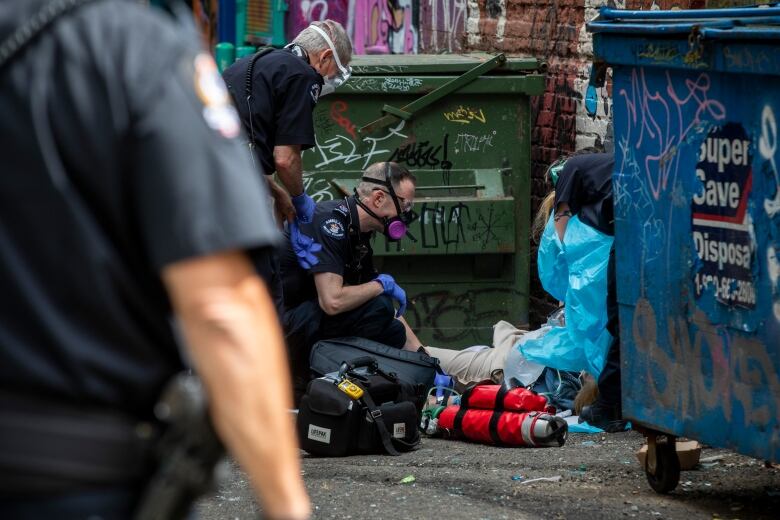Vancouver to seek federal approval to decriminalize simple possession of illicit drugs
If approved, city would become first jurisdiction in Canada to decriminalize possession

Vancouver Mayor Kennedy Stewart says he will ask thefederal government to approve a plan to decriminalize simple possession of illicit drugs in the city.
The move comes as the overdosecrisis shows no sign of slowing, with 2020 tracking to be the worst year on record with 328 overdose deaths in the city so far.
"Personal possession and use of drugs is not a criminal justice issue;it is a health issue," said Stewart."It is time to end the stigma around substance use, help connect more of our neighbours tohealth care, and save lives."
If successful,Vancouver will become the first jurisdiction in Canada to decriminalize simple possession.
More than 1,500 lives have been lost to the overdose crisis in Vancouver since British Columbiadeclared it aprovincial public health emergency in April 2016.
WATCH |Vancouver mayor defends move to decriminalize simple drug possession:
City council is expected to approve a motion on decriminalization next week. That will be followedby a request to the federal government for an exemption from the Controlled Drugs and Substances Actto allow the possession of small amounts of illicit substances within the city's boundaries.
Stewart said federal Health Minister Patty Hajdu is a "champion" of decriminalization and has the authority to quickly sign off on the plan.
"I'm hoping for good news this year, but wecan see this going on to the spring," he said.
Pandemic exacerbated drug problems
The COVID-19 pandemic has been particularly brutal on drug users.
Vancouver's chief medical health officer,Patricia Daly,said the pandemic hasresulted in a more toxic drug supplywhile at the same timemaking it difficult for people toseek harm reduction and addiction treatment.

"It's really crucial that in the midst of responding to pandemic, we must respond to the worsening opioid overdose crisis," she said.
Daly said the number of opioid overdose deaths in Vancouver this year is double the number of COVID-19 deaths. Provincewide, 1,200 people have died from opioid overdoses in 2020, compared to 290 from COVID-19.
"The difference is that those [dying from overdoses] are younger on average, and 90 per cent are in the prime of their lives between 19 and 59 years of age," she said.
Stewart says the specific details ofdecriminalizationsuch aswhat amount of each substance will be considered simple possession and whether to apply non-criminal sanctionswill be worked out with Vancouver Coastal Health, the Vancouver Police Department and other experts.
Daly said the work on decriminalization in Vancouver could also eventuallyexpand to other parts of the province, such as the northern region, where the overdose crisis is worsening.
In March,the province launched a safe supply program to give people access to prescription alternatives to illicit drugs in response to the dual health emergencies.













_(720p).jpg)


 OFFICIAL HD MUSIC VIDEO.jpg)
.jpg)



























































































